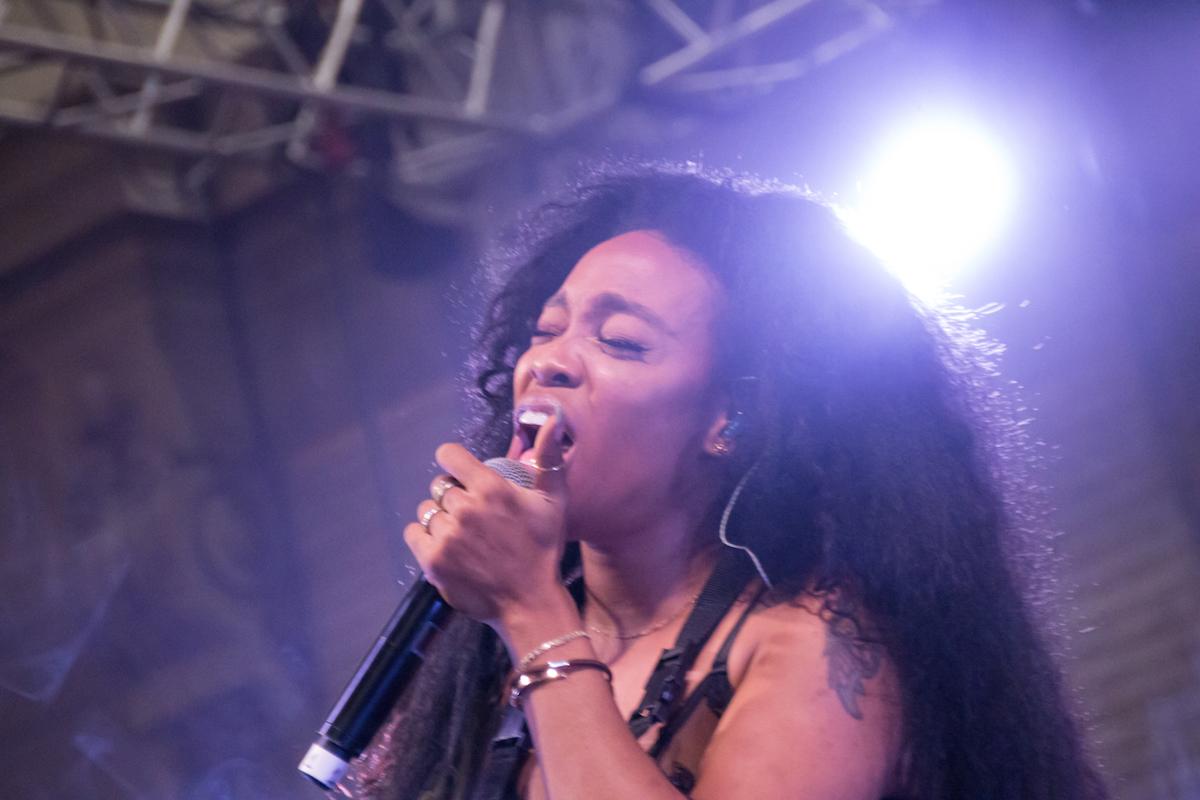Afropunk London was a much-needed celebration of blackness and diversity

Your support helps us to tell the story
From reproductive rights to climate change to Big Tech, The Independent is on the ground when the story is developing. Whether it's investigating the financials of Elon Musk's pro-Trump PAC or producing our latest documentary, 'The A Word', which shines a light on the American women fighting for reproductive rights, we know how important it is to parse out the facts from the messaging.
At such a critical moment in US history, we need reporters on the ground. Your donation allows us to keep sending journalists to speak to both sides of the story.
The Independent is trusted by Americans across the entire political spectrum. And unlike many other quality news outlets, we choose not to lock Americans out of our reporting and analysis with paywalls. We believe quality journalism should be available to everyone, paid for by those who can afford it.
Your support makes all the difference.Since 2005, Afropunk has been an annual music festival held in Brooklyn, New York. As time has progressed, the festival has gone through many transformations. Originally celebrating black people in predominantly white punk subcultures, the festival expanded to include soul and hip-hop. Afropunk has now gone global, with the event being held in Paris and now London. News of M.I.A headlining Afropunk’s London edition was not met with a warm welcome, due to her controversial comments on the Black Lives Matter movement. After much deliberation, the Sri Lankan artist was dropped and replaced by the iconic supermodel and artist Grace Jones. When the organisers removed M.I.A from the headlining spot, they declared that they were "excited and honoured" to hold their first Afropunk Festival in London and "do it right”. So the question is, did they do it right?
Afropunk London was held at the grand Alexandra Palace. The venue was more extravagant than the outdoorsy feel you get from most festivals, but Afropunk is not your average festival. The festivalgoers push the boundaries of fashion and are effortlessly stylish. This is what Afropunk encourages, for you to be fearlessly yourself. The stylishness of the festival-goers made London Fashion Week attendees seem tame. Everything at Afropunk is a photo opportunity, so those who went were regularly asked to pose for photos. Being stopped by members of the press or attendees in awe of you for photos made you feel like a celebrity. In a world where it can feel unsafe to have black skin, the amazement from onlookers made you remember the beauty in your carefree blackness.
Back to the music. The stages were given names such as “No Hate” and “Soulection,” so the message of Afropunk was loud and clear. The ethos was acceptance and love celebrated via sound. British rapper Akala helped amplify that message with a powerful performance. When he entered the stage, he stated that the theme was “War on Conflict”. A huge crowd gathered for the rapper, who is renowned for his insights on race and politics. Akala performed his hit "Rise Up", a sharp attack on the establishment with strong reggae influences.
Another fan favourite was American singer SZA. With her neo-soul sound, the Top Dawg Entertainment singer was a highly anticipated act and did not disappoint. Her performance of her song "twoAM" was mystifying and she owned the Soulection stage. Another singer who stormed the Soulection stage was Kwabs, an artist hailing from London. Kwabs is known for his arresting vocals and his performance of his song "Cheating on Me" was stirring and full of conviction.
Grace Jones was undoubtedly the star of the show. She was in her element as the festival celebrates innovation and creativity. Grace’s fabulous figure was adorned in body paint and she commanded the stage by telling the audience to "put your phones away and "put them in your p*ssy". Grace’s performance was true mastery of the art, and her hula-hooping on stage had the crowd transfixed.
Apart from music, the fest had a thrift market, mostly filled with African-inspired clothes and accessories that were affordable and eye-catching. Aside from fabric, another attraction at Afropunk was the food. The cuisine on offer was multicultural, perfectly reflecting London’s diverse demographics. Another activity to engage in at Afropunk was art. Original works of art were on display and festival goers could interact with them.
The outfits seen at Afropunk gave it the feeling of a fashion show but with inclusiveness. Black natural hairstyles, which are often demonised, were worn proudly and ornately at the festival. The clothes worn provided a spectacle, with African attire widely worn from dashikis to ankara. Singer Alxndr London’s white outfit was a showstopper. His ivory ensemble beautifully combined Japanese accessories and Nigerian clothing, topped off with socks and sliders.
All in all, Afropunk was a much-needed celebration of blackness and diversity. It was made clear from when you entered Afropunk that this was a festival of love and not hate, prejudice would not be tolerated. 2016 is a year that has been blighted with racism and misogynoir such as the attacks on Leslie Jones and the constant arrogance of cultural appropriation. It was powerful to see blackness without any censor reign proudly at Afropunk. What also made this more special, was that everyone else was invited to the show.
Afropunk London was triumphant and its return to the capital will be eagerly awaited.
All images courtesy of Emmanuel Oghale.